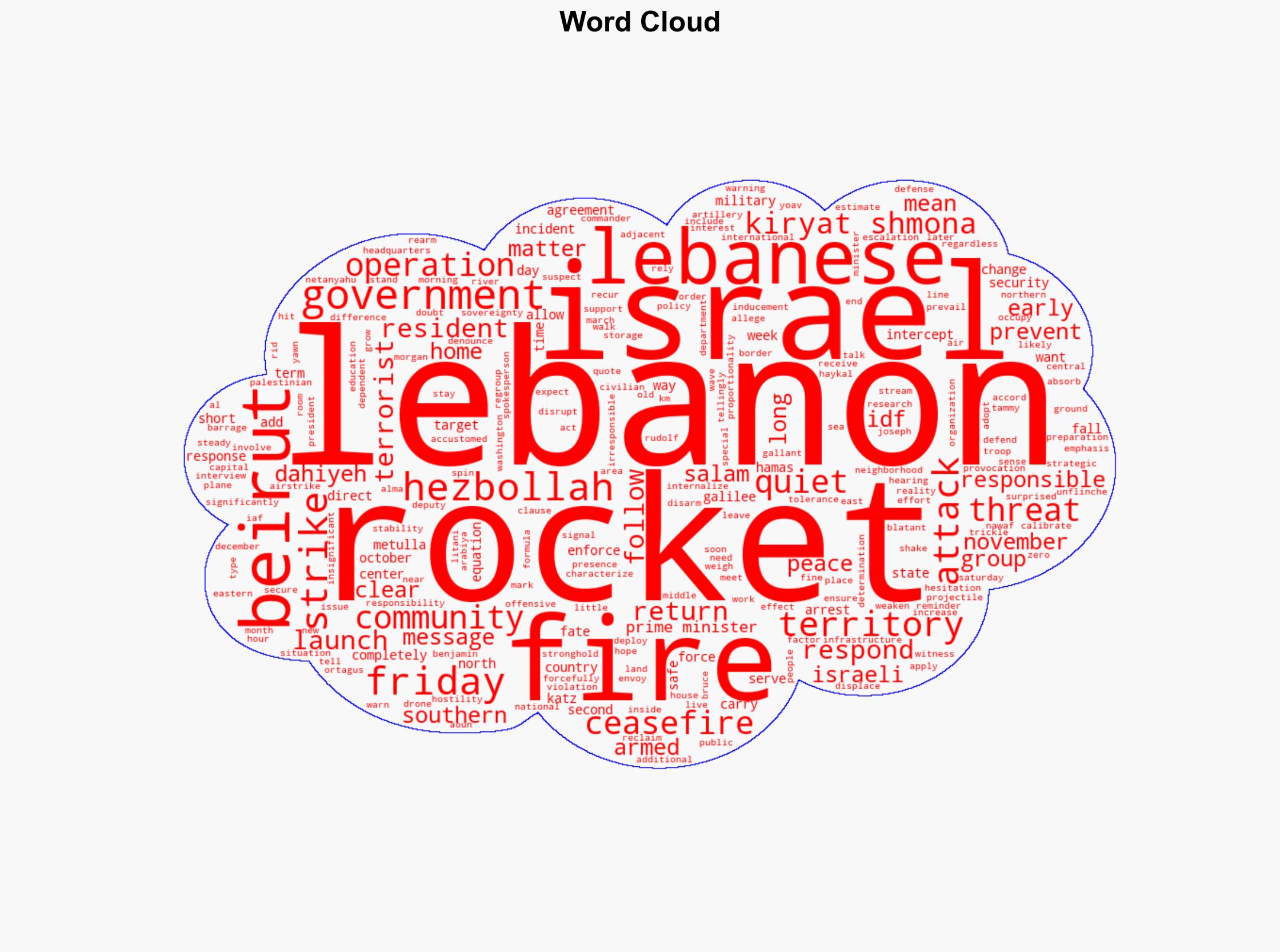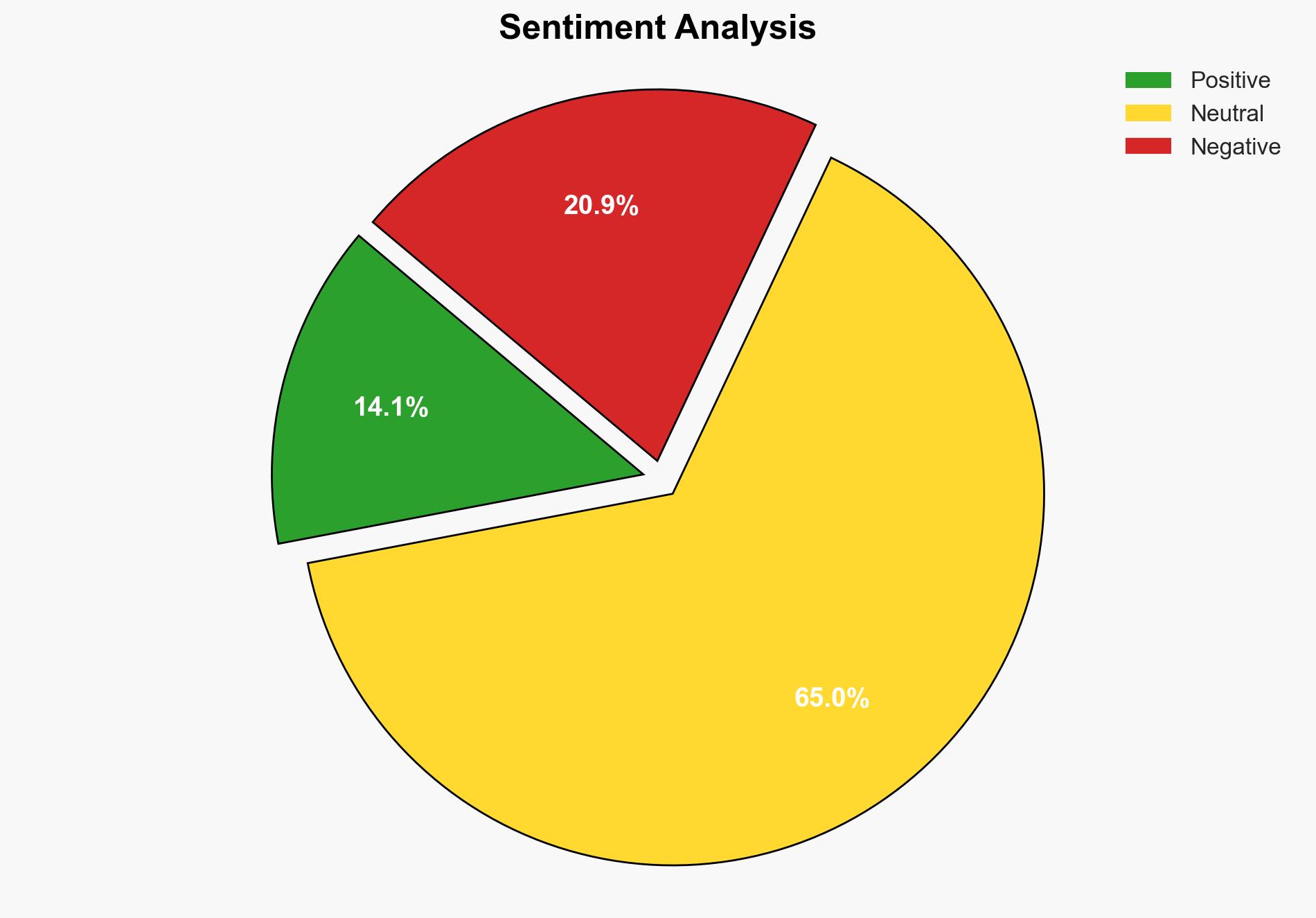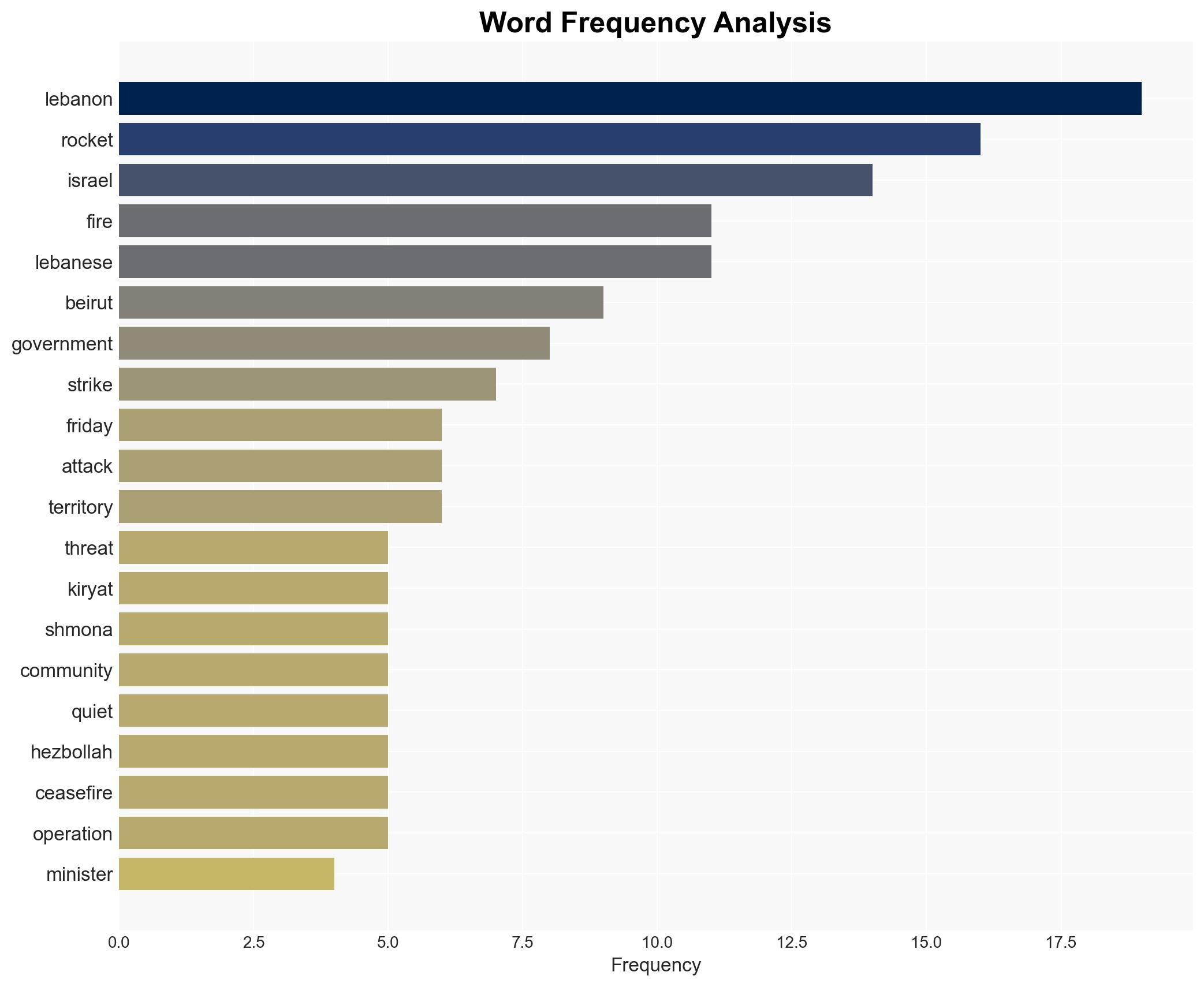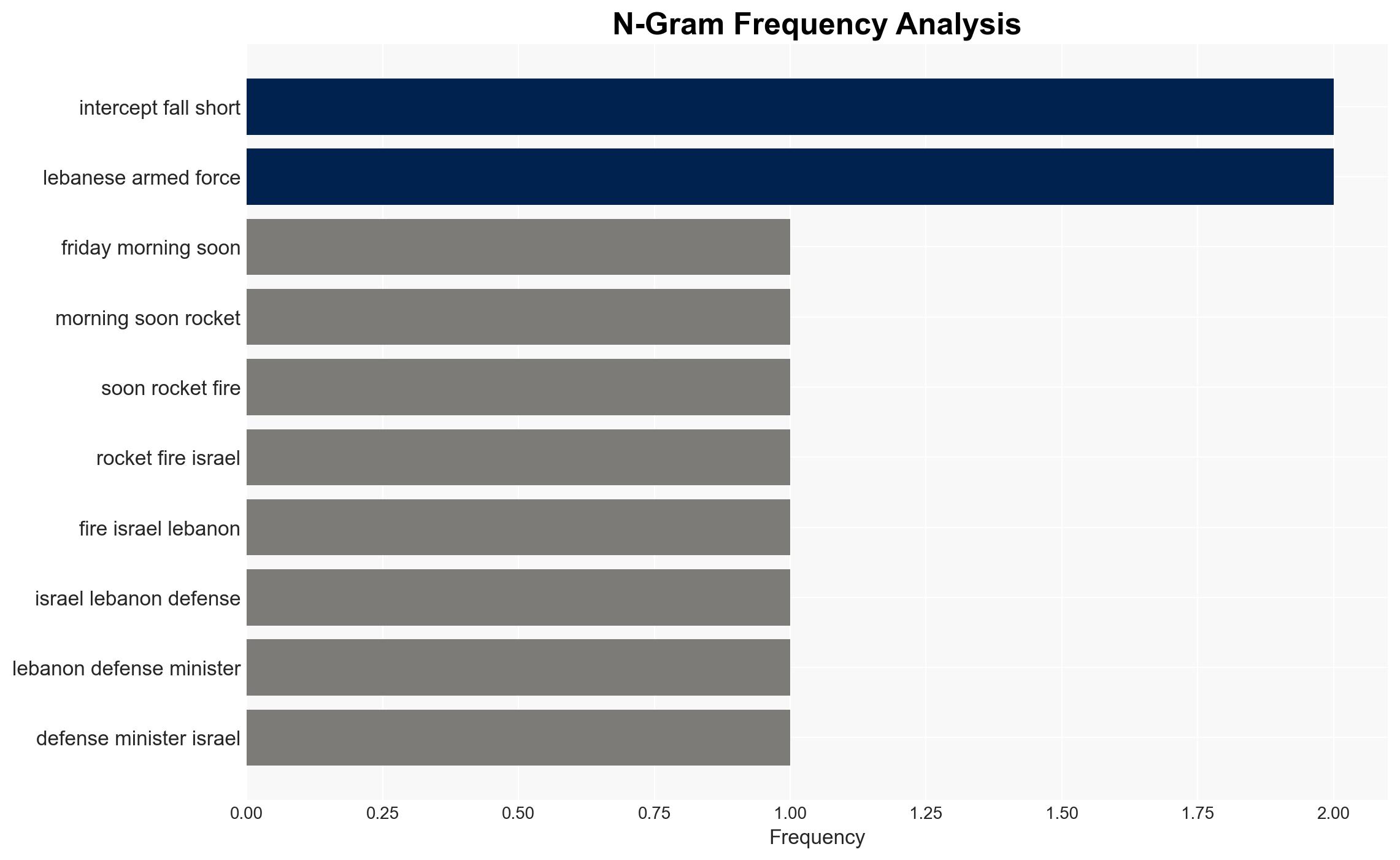Israel recalibrates rules on Hezbollah Lebanon ceasefire with Beirut strike – The Jerusalem Post
Published on: 2025-03-30
Intelligence Report: Israel recalibrates rules on Hezbollah Lebanon ceasefire with Beirut strike – The Jerusalem Post
1. BLUF (Bottom Line Up Front)
Israel conducted a strategic airstrike on a suspected drone storage center in Beirut, signaling a recalibration of its ceasefire rules with Lebanon. This action follows a series of rocket attacks from Lebanon into Israeli territory, indicating heightened tensions and a potential shift in Israel’s defensive posture. The Israeli government is emphasizing the need for increased security measures along the Lebanese border, and the airstrike serves as a direct message to both Hezbollah and the Lebanese government regarding the enforcement of ceasefire terms.
2. Detailed Analysis
The following structured analytic techniques have been applied for this analysis:
General Analysis
The recent escalation began with rocket fire from Lebanon into Israel, prompting a swift and forceful response from Israel. The Israeli airstrike targeted a location in Beirut associated with Hezbollah, a significant move that underscores Israel’s zero-tolerance policy towards provocations. The Israeli government’s strategy appears to focus on deterring further aggression by demonstrating a willingness to take decisive military action. The airstrike also serves as a warning to the Lebanese government to control armed groups within its territory.
3. Implications and Strategic Risks
The escalation poses several risks, including:
- Increased regional instability, potentially drawing in other actors and exacerbating tensions in the Middle East.
- Potential for further military engagements between Israel and Hezbollah, leading to civilian casualties and infrastructure damage.
- Economic impacts on both Israel and Lebanon, particularly in border regions affected by military activities.
The situation also risks undermining international diplomatic efforts to maintain peace and stability in the region.
4. Recommendations and Outlook
Recommendations:
- Enhance diplomatic engagement with international partners to reinforce the ceasefire agreement and ensure compliance by all parties.
- Increase intelligence-sharing and surveillance capabilities to monitor potential threats and prevent future escalations.
- Strengthen border security measures to protect civilian populations and critical infrastructure.
Outlook:
Best-case scenario: The ceasefire holds, and diplomatic efforts lead to a de-escalation of tensions, with both Israel and Lebanon taking steps to prevent further provocations.
Worst-case scenario: Continued hostilities result in a broader conflict involving regional actors, leading to significant casualties and economic disruption.
Most likely scenario: Periodic skirmishes and provocations continue, but full-scale conflict is avoided through ongoing diplomatic interventions.
5. Key Individuals and Entities
The report mentions significant individuals and organizations, including Israel Katz, Yoav Gallant, Nawaf Salam, Joseph Aoun, and Rudolf Haykal. These individuals are central to the unfolding events and decision-making processes.




